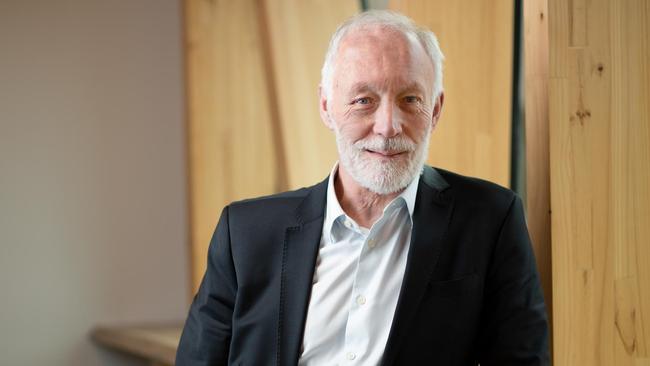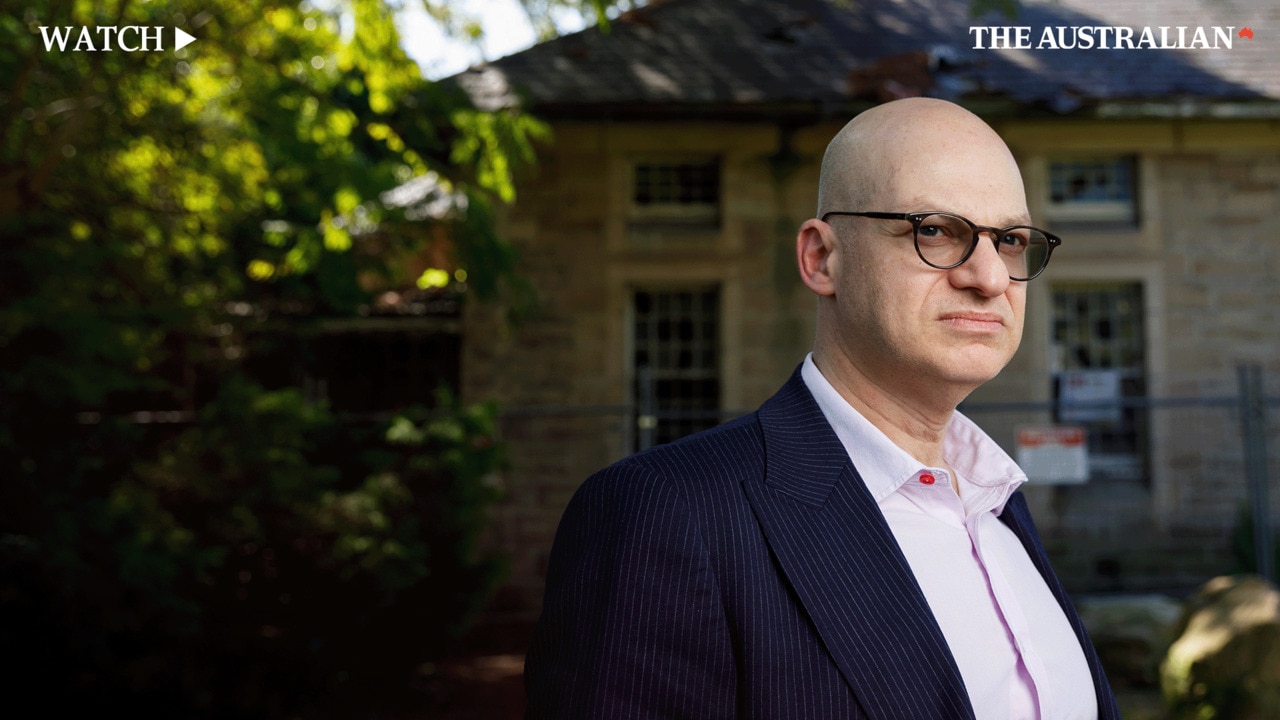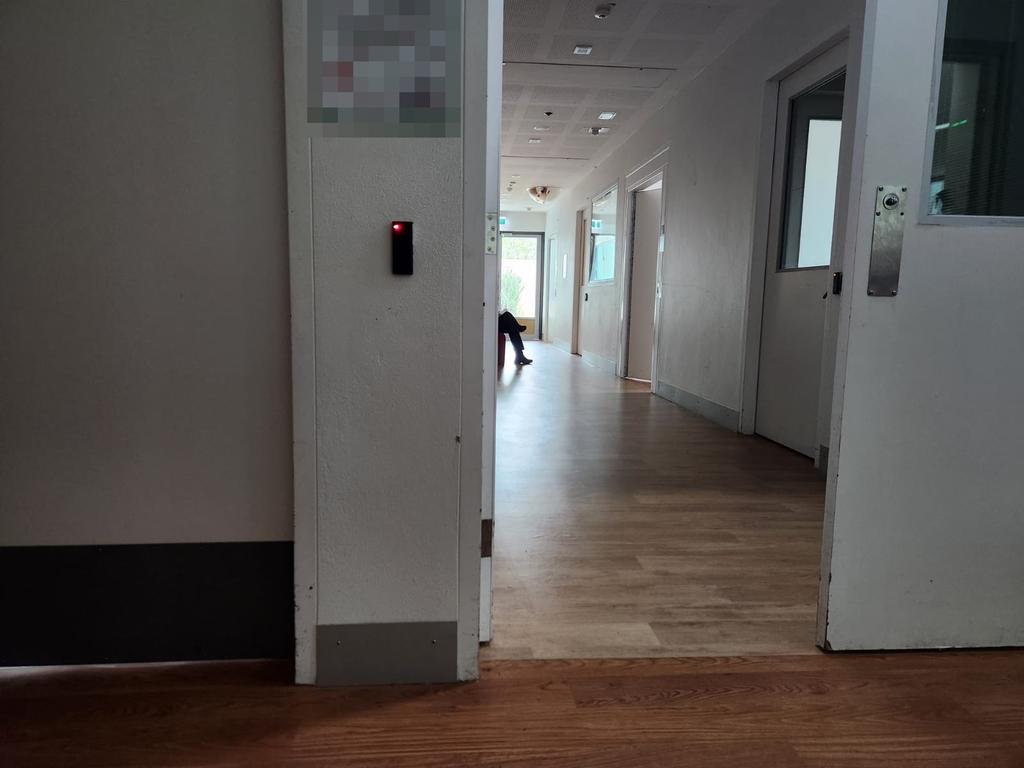Pledge to look after those with mental illness ‘cynically broken’
One of the nation’s most prominent psychiatrists says those with the most severe conditions are critically neglected and marginalised, as the AMA calls for systemic reform.

One of the nation’s most prominent psychiatrists has labelled Australia’s mental health system “fundamentally broken” with those with the most severe conditions critically neglected and marginalised.
Pat McGorry says The Australian’s series on mental health, Cast Adrift, had established beyond doubt the need for urgent reform.
“The neglect and severe inequity in relation to mental illness is worse than ever and as federal Health Minister Mark Butler has stated, it is a ‘national stain’ and a scandal,” Professor McGorry said.
“Forty years ago, Australia discarded the 19th-century asylums in favour of a new system of ‘mainstreaming’, which placed mental healthcare under the wing of acute general hospitals and GPs.
“The pledge was that the assembly of dynamic, well resourced, expert community mental health teams, and modern supported community accommodation facilities would allow society to shed tens of thousands of hospital beds. The valuable real estate of the mental hospitals and the large budgets that supported them were cashed in by state governments.
“Not only was this pledge cynically broken but so ultimately was the whole public mental health system. It remains broken but the decline appears to be accelerating nationally.
“The scope and quality of care, despite the best efforts of the morally injured remaining staff, is precarious, fragmented and declining rapidly. A vast cohort of psychiatrists and other mental health professionals have been driven out of our public health system, which is now on its knees in most parts of Australia, held together by locums and casuals.
“The tens of thousands of Australians with severe mentally illness are all too often on the verge of homelessness, and are often being criminalised through widespread neglect of basic psychosocial supports. The latter were cast aside when the old asylums were dismantled and clinical care narrowed to risk management.
“The asymmetry in health funding is extreme. Mental illness is responsible for a similar level of health burden to Australia as cancer yet the funding, access and quality is a mere fraction of the latter. This is despite the fact the economic impact of mental illness is double that of cancer and the return on investment of effective mental healthcare is arguably one of the best buys in all healthcare.

Last week, The Australian in conjunction with the Australian National University documented the extent of the critical neglect of the severely mentally ill in Australia, with the shortfall in the provision of healthcare, social services and housing for sufferers amounting to about $8bn a year. There is a national workforce shortage of about 2800 psychiatrists despite the need for about 5000, and a shortfall of about 10,000 needed hospital beds for mental health patients.
A spend of $6bn a year on supported housing with healthcare and social services attached would prevent up to 75 per cent of all inpatient psychiatric hospital admissions.
Professor McGorry’s comments come as the Australian Medical Association calls for the formation of an interjurisdictional, special-purpose mental health council to address the system-wide crisis.
The AMA also wants the immediate re-establishment of an independent National Mental Health Commission, which was disbanded six months ago despite being the only body that provided yearly evidence-based report cards on how governments were performing on their mental health spending and policy promises.
Professor McGorry, executive director of the youth mental health and early intervention service Orygen, said since 2007, the nation had witnessed a surge of new cases of mental ill health in teenagers and young adults with a rise of 50 per cent prevalence.
“This is the pipeline to severe mental illness and if this pipeline is not interrupted, the already broken system of mental health care will finally go under,” he said.
“Early intervention for severe mental illness in young people is proven to be one of the most cost- effective interventions in healthcare, but only available in pockets of this country. It is long overdue for a fair go for our young people in general and especially for the major health threat.”

AMA President Danielle McMullen said efforts to address Australia’s crisis in mental health care even in the wake of the Westfield Bondi Junction murders by a man living with schizophrenia, were piecemeal.
“Mental health ministers came together after the Westfield Bondi tragedy, and following the meeting promised to work together to improve access to mental health services through a re-affirmed commitment to delivering the National Mental Health and Suicide Prevention Agreement,” says AMA president Danielle McMullen. “While that’s a good step in the right direction and ministers committed to meeting twice a year, this is not nearly enough to ensure continued transparent and co-ordinated efforts to address the crisis in mental healthcare in Australia.”
In a submission to a federal Department of Health consultation on reforms to strengthen the NMHSPA, the AMA says accountability standards are essential to ensure Australia’s mental health system is robust and equitable. The NMHC was established as an executive agency in 2012 to provide independent advice to the community and government on Australia’s mental health system.
“The effectiveness of mental health strategies has not improved in more than 30 years, and may indeed have declined, even though there have been public inquiries, royal commissions, and the involvement of those with lived experience, along with significantly increased government spending,” the submission says.
Dr McMullen said systemic reform was urgently necessary: “We need to transform how mental healthcare and suicide prevention is managed in Australia and this starts with the right systems in place.”





